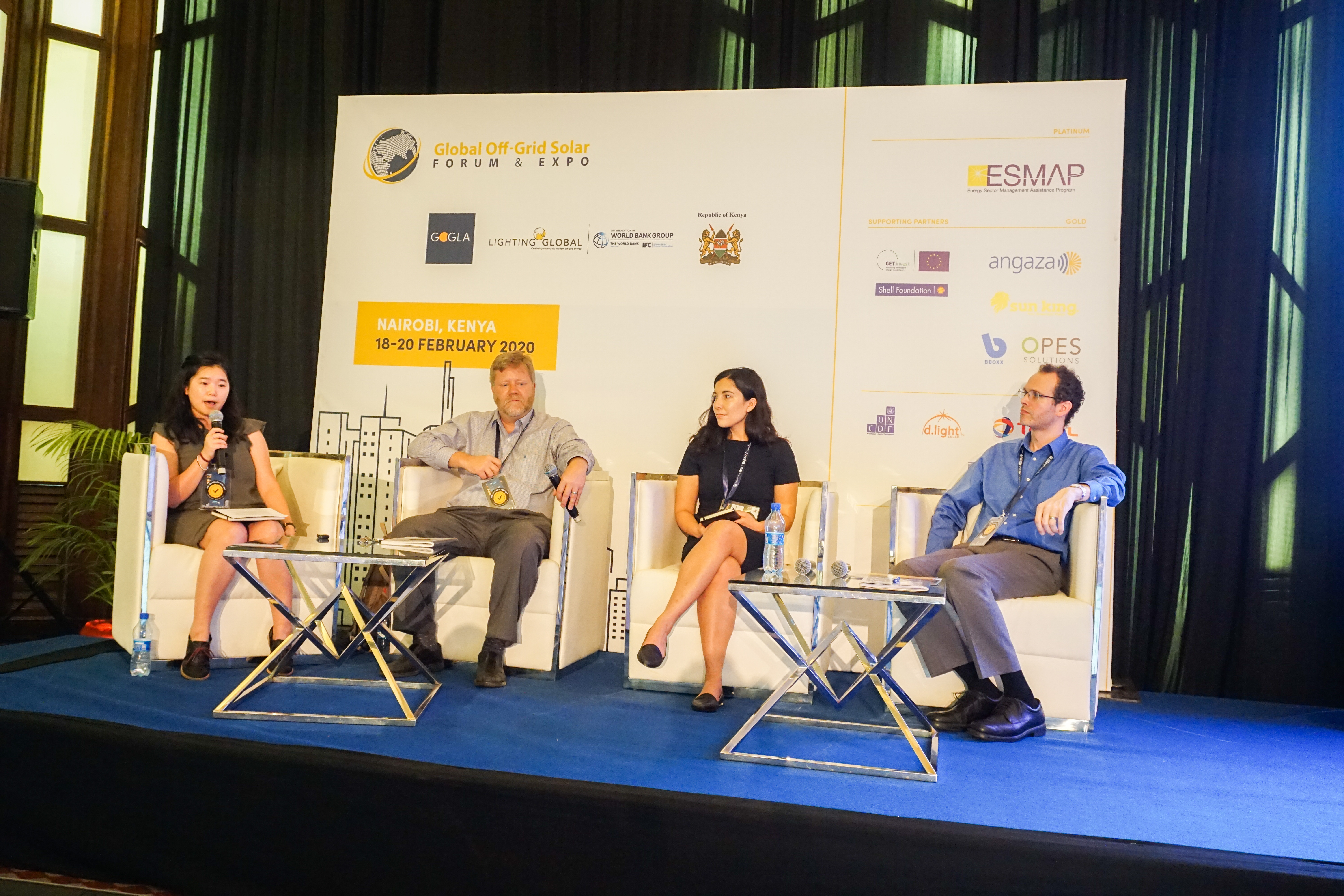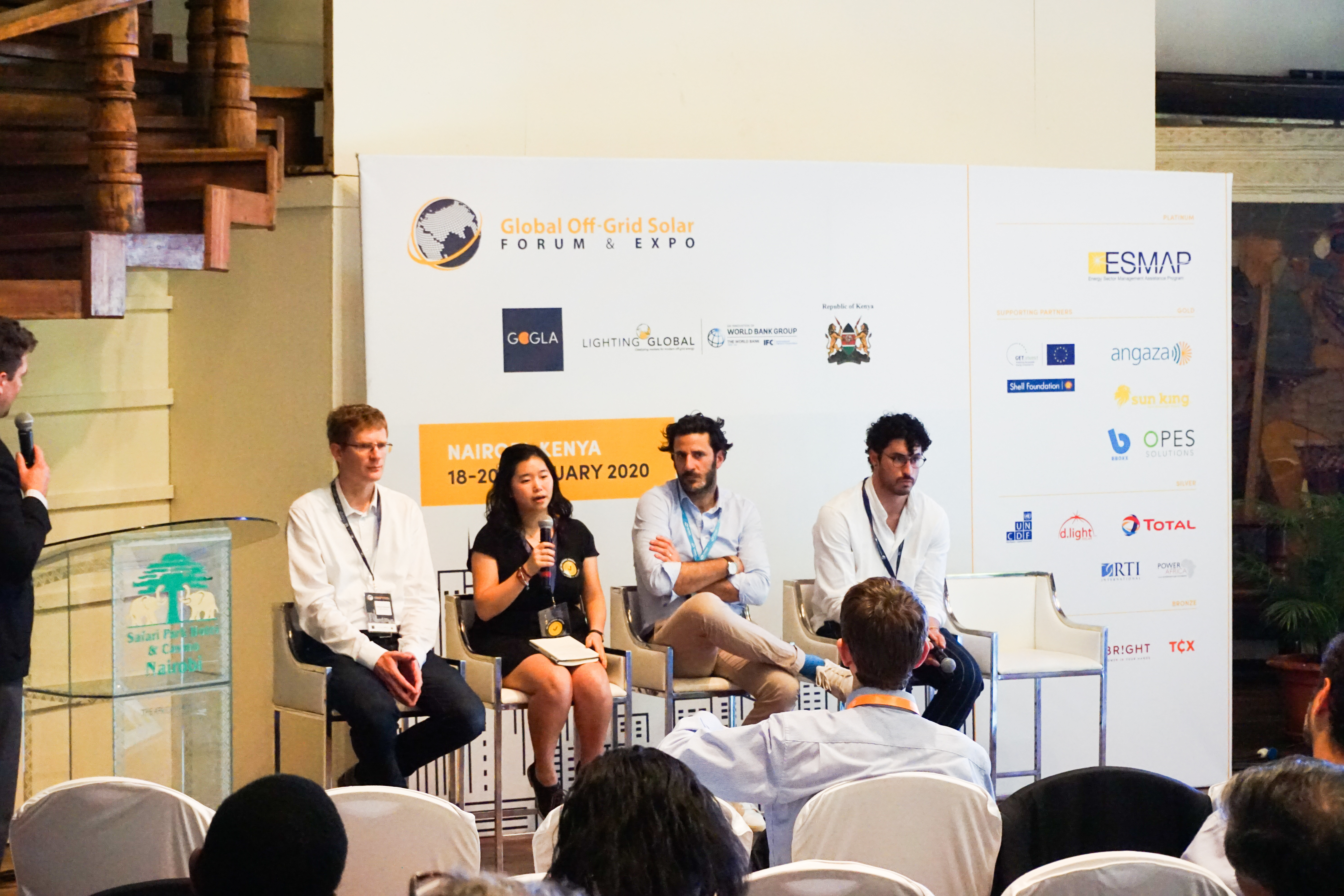Five Highlights from the Global Off-Grid Solar Forum & Expo
Last month, the VeraSol team joined nearly 1,300 professionals at the Global Off-Grid Solar Forum & Expo in Nairobi, Kenya. Throughout the week, the VeraSol team was hard at work launching an evolved program and seeking input from our partners on how we can better meet their needs. Here are our top five highlights:
1. CLASP, Lighting Global, and the Schatz Energy Research Center launched VeraSol, an expanded QA program for a rapidly changing sector
On Tuesday, February 18, Christine Egan (CEO of CLASP), Russell Sturm (Global Head of Energy Access at IFC), and Arne Jacobson (Technical Lead of VeraSol) debuted the new program at the Exhibition Hall and Industry Reception.

On Thursday, Ari Reeves, Arne Jacobson, Lauren Boucher, and Elisa Lai presented on the VeraSol program, the transition to IEC quality standards, and how quality assurance may expand into new product categories. The audience was invited to give feedback on what services and data they need from us. Among other topics, participants asked how we verify the performance of products in the market and about our plans to address an expanding variety of products and configurations. There were questions about the cost of certification and how stakeholders can get involved in the process of developing and revising test methods and quality standards.
Were you unable to attend our session in Nairobi? We will hold two similar webinars this month. Please register for the date and time that is most convenient for you:
2. Test lab network meeting helped set partners up for success in 2020
The IEC’s adoption of quality standards for standalone solar energy kits and VeraSol’s expansion of services into appliances signals many changes for our test lab network. To help test labs prepare, our team hosted a meeting on Thursday, February 20 to discuss the transition to IEC TS 62257-9-8 and identify the challenges the labs currently face or foresee in the near future. Looking to the future, labs expressed interest in expanding their capacity to test off-grid appropriate appliances and productive uses, now in scope under VeraSol. Currently, there are five labs in the VeraSol test lab network able to test appliances; that number may increase if interest in these services grows.
3. Trainings and conversations with governments and other practitioners indicated growing interest in adopting/referencing quality standards for pico-PV products and SHS kits
Members of the VeraSol team met with representatives from national governments, national renewable energy associations, the World Bank Group, GOGLA, manufacturers, and programs (such as the Africa Clean Energy program (ACE)) to align understanding and activities around overlapping standards-related efforts. Engagement indicates growing public and private sector interest in adopting standards and establishing QA for component-based solar home systems. VeraSol plans to support national governments and programs in these efforts this year.
4. Tour of the University of Nairobi lighting laboratory gave stakeholders a look inside the testing process
The VeraSol team led a study tour of the lighting laboratory at the University of Nairobi, in collaboration with the World Bank and lab staff. Government representatives from nine African countries, plus Haiti, Pakistan, and Papua New Guinea took part. Participants saw how standalone solar products are tested and learned about what it takes to set up and maintain a lab.
5. VeraSol data identified as a tool to help market actors address market barriers
The market for solar appliances is growing quickly: 65% of GOGLA members now include appliances in their business portfolio. Elisa Lai presented in a consumer-centric technology session on the latest market and technology trends and discussed resources to make technologies more applicable and appropriate to the needs of end-users. Few data are available to help buyers make informed purchasing decisions about appliances and productive use equipment. VeraSol will help bridge this gap by testing, evaluating, and sharing the performance data that can help market actors identify good-quality products.
